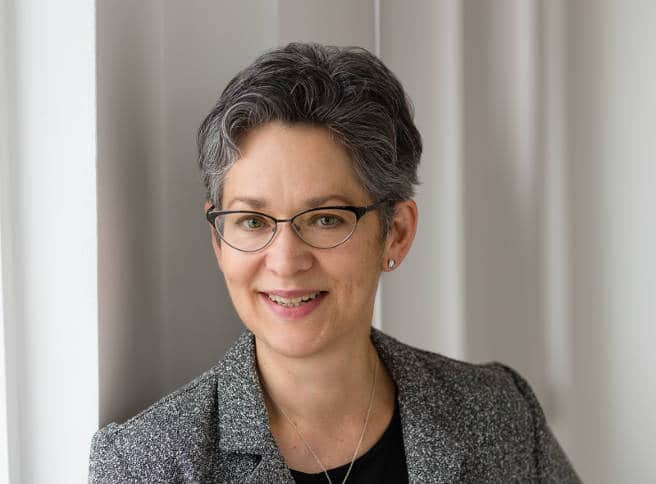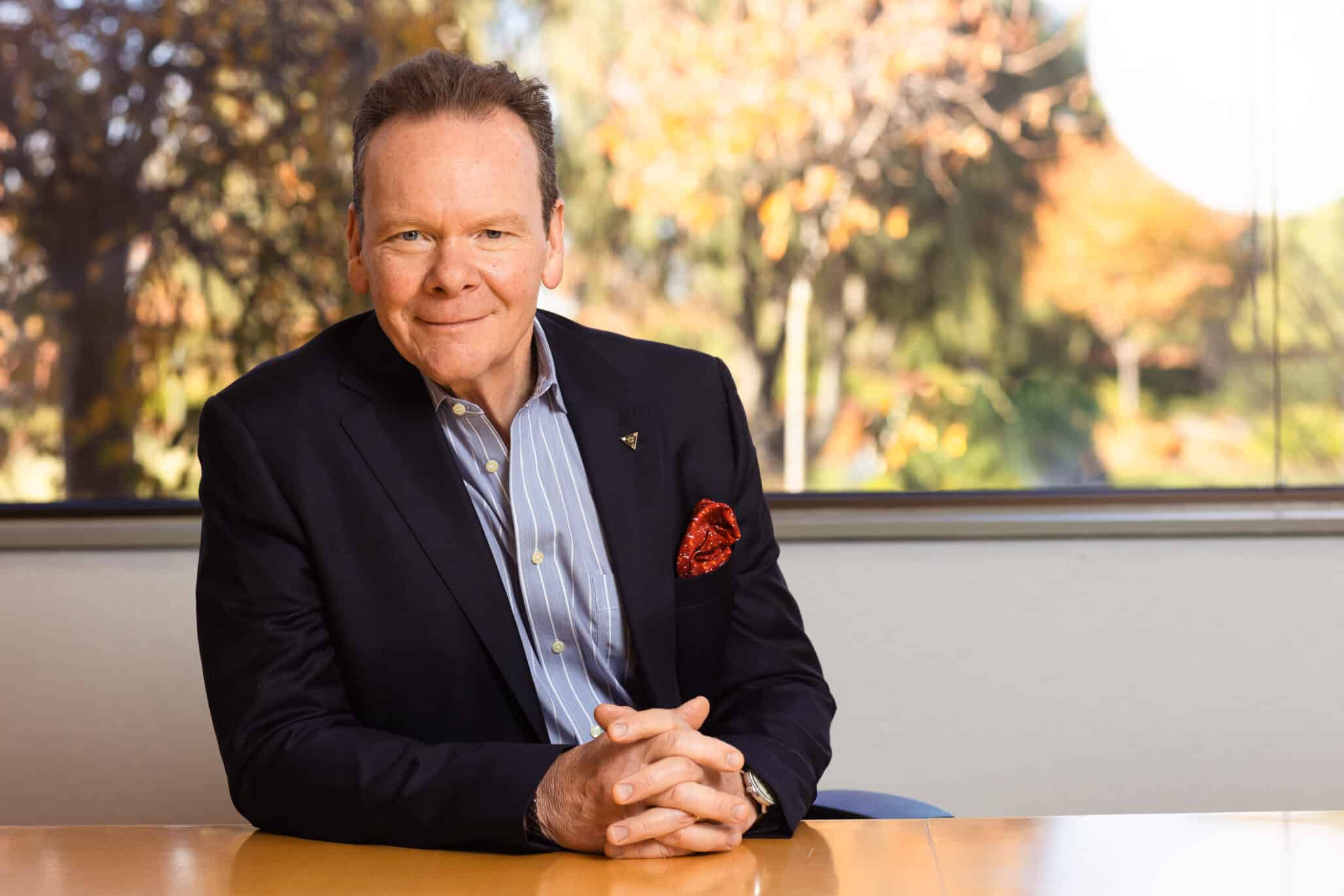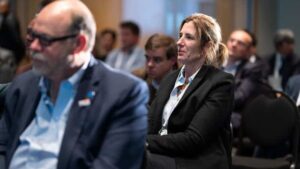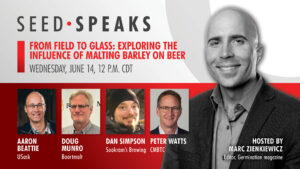Erin Armstrong says the key to finding your path in the industry is to follow your heart, don’t be afraid of trying different things, and work to unite people.
Erin Armstrong’s story isn’t one of a small-town farm girl making her way into the ag industry. Having been born in Winnipeg and spending her early school years in Montreal, the director of industry and regulatory affairs for Canterra Seeds didn’t have any intention of getting into agriculture.
“I’m a city girl. Ag was not on my mind at all. As with much of my life and career, it was a process of elimination,” she says. “I was considering all kinds of things, from architecture to law to science. I ended up doing my undergrad in food science.”
For all intents and purposes, Armstrong could have enjoyed a career in that field, helping craft new food products for consumers, and never entering the seed industry. That is until she found herself at the University of Ottawa working for a professor who was researching a bacterium called Bacillus thuringiensis, or Bt, and a toxin it was known to produce that was lethal to insects.
The Bt trait is now incorporated into genetically modified corn, potato and cotton to prevent it being destroyed by pests.
“I didn’t appreciate what I was working on until afterward,” she says.
It was the beginning of her introduction to crops and the science behind them, which was further developed during her PhD project at Agriculture and Agri-Food Canada in Ottawa, which would lead to a career in seed. In addition to her role at Canterra Seeds where she started in 2008 as director of research and product development, she also served for over two years as CEO of Limagrain Cereals Research Canada (LCRC), a partnership between Canterra Seeds and the France-based Limagrain.
Other major roles have included an eight-year stint overseeing the Brewing and Malting Barley Research Institute, which came out of a job she had at Canada Malting. Armstrong has become a hugely respected and influential figure in her field, known as an expert communicator who can bring everyone around the table.
Armstrong sat down with Germination to talk about the major success strategies she’s learned and passed on to others in regard to building a career in seed.
Be a Uniter
According to Armstrong, it’s crucial to get everyone around the table. This unites people and makes them truly feel like a part of the decision-making process — crucial in the business world. She has experience as both a researcher and an executive, so she knows what it’s like on both sides of the table. Perhaps more importantly, she knows the skills that apply to one area can apply to the other — a major reason she’s been successful in both the research and corporate spheres.
“When I agreed to interview for the job at Canada Malting, I really didn’t know anything about malt,” she says with a chuckle. “I was reading a textbook on an airplane going to a job interview at a malting company. When I look back on it, that was a little scary. But it worked out.”

Tom Steve, general manager of the Alberta Wheat Commission, can testify to how important it is to be successful at bringing many voices to the table.
“Erin is a collaborator and a conciliator, and always takes a very professional approach, which I appreciate about her. You know exactly where she’s coming from. She’s not one to initiate controversy — she brings different opinions together to find areas of common interest,” he says.
“People feel a certain comfort level that she’s going to listen to all sides, as opposed to being hard and fast on any particular issue. She uses a fact-based approach to bridge those gaps.”
David Hansen, CEO of Canterra Seeds, can attest to that. Trying to bring stakeholders together from the public and private sector is not easy, he says, and having someone with Armstrong’s skills at the table helps to make initiatives like the LCRC possible.
“She has that inherent quality and ability to reach people without them feeling like there’s an agenda already set or decisions have already been made. That’s valuable,” he says.
Be Open to Trying New Things
Armstrong didn’t really know the seed industry until she got into it.
“I asked myself what I wanted in a job, and worked through that for myself. I’m glad I made the decisions I made, but there’s never a right or wrong answer when you’re contemplating different paths in life.”
Advice she’s given routinely over the years is that it’s as important to know what you don’t want to do, as it is to know what you do want to do.
“Sometimes you don’t know that until you try something. I love my industry, and it took me a lot of exploring to get here, but that’s what life is about — trying different things and not being afraid to admit when your heart’s just not in something.”
Iris Meck knows a bit about what that process looks like. After spending years working in the ag industry, she now runs Iris Meck Communications Inc., which organizes the Advancing Women in Agriculture conferences held twice every year.

Armstrong was a keynote speaker at the western conference held in Calgary back in March. The event offers a forum for all women in every sector of agriculture to hone their leadership and advocacy skills, network, and gain valuable knowledge to benefit their career and day-to-day life.
“Erin is a great example of someone who’s made her way through this industry and worked in many different capacities, and as women play an ever-more important role in agriculture, those experiences are hugely valuable for others to hear about and learn from,” Meck says.
Don’t Get Hung Up on Gender
As more women continue to enter the seed and agriculture industries, Armstrong says it’s important to realize that skills are what count.
“Women do face challenges that men don’t, whatever those challenges might be for the individual. Women sometimes have to work harder to be recognized for something than a man might be, but for every example I can give of a situation where I wasn’t given an opportunity or was treated maybe differently, I can give examples of opportunities given to me by men,” Armstrong says.
“At the end of the day, you don’t have to wait for someone to offer you a job — you can create your own opportunities as well. You don’t need to know what you want to do for the rest of your life; you just need to know what you want to do next. Everything is based on what you’ve done before. Don’t worry about the rest of your life, just worry about the next step, and what that that looks like”
JoAnne Buth has known Armstrong for over a decade. Buth was a Canadian senator from 2012-2014, and left the Senate in order to become CEO of the Canadian International Grains Institute. Buth says Armstrong has taught her some valuable lessons about seed and agriculture, and how to make your voice heard and stand out from the crowd.
“She gave a presentation last year on variety registration, and when I saw it I thought she’s probably the only one who could have done it. She put context around it so it was easy for people to understand where we were at and what still needed to be done,” Buth says.













